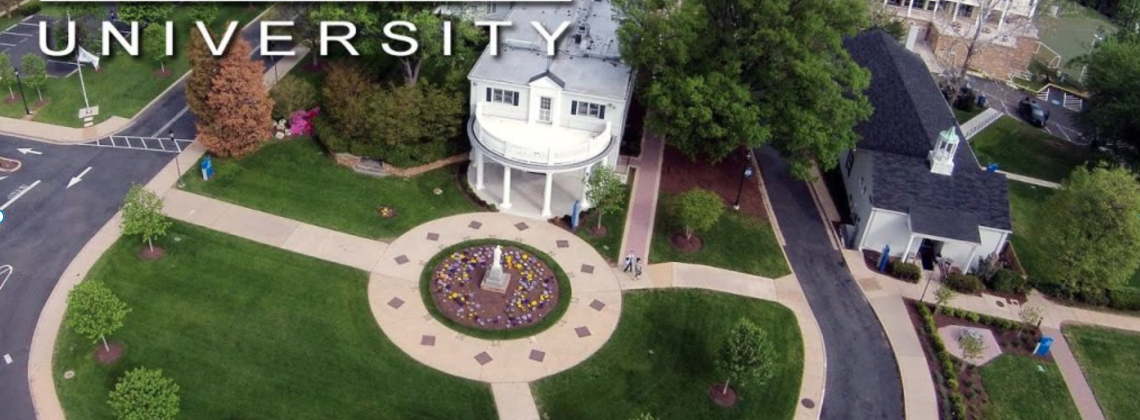

Marymount, a Catholic university in Arlington, Virginia, is eliminating degrees in theology and religious studies, philosophy, mathematics, art, history, sociology, English, economics, secondary education, and M.A. programs in English and the humanities. Ouch. Marymount University should now be considered a professional school.
Students, alumni, and faculty are not happy.
Here is Jo DeVoe at ARLNow:
In a bid to cut fruitless vine branches, the school is eliminating 10 degrees and programs — mostly in the humanities, including theology and English.
The looming decision has roiled the school community, including current and former students, faculty and even a national association of historians.
In a letter shared with ARLnow, the Catholic university’s president Irma Becerra said Marymount will eliminate bachelor’s degrees in theology and religious studies, philosophy, mathematics, art, history, sociology, English, economics and secondary education, as well as a master’s program in English and the humanities.
“Over the long term, it would be irresponsible to sustain majors [and] programs with consistently low enrollment, low graduation rates, and lack of potential for growth,” Becerra said. “Recommendations and decisions on programs marked for elimination are based on clear evidence of student choices and behavior over time.”
Becerra said the savings from ending programs for these subjects — to which Catholic thought has contributed for more than a millennium — would support more popular majors. Other savings would come from a voluntary retirement program.
The attention to the university’s budget comes after what appeared to be a fruitful 2022 for the Catholic school, with higher enrollment rates, new softball and wrestling teams and new majors. It was even mulling building a new athletic facility.
Reaction from the school community has been swift. Alumni started a petition and the Student Government Association and the American Historical Association have sent letters to Becerra pleading for her to reverse course. Long emails blasting this decision have poured into ARLnow today (Friday) from current and former students and faculty.
“This is unnecessary and a real threat to shared governance and our faculty’s ability to serve our students well,” said Holly Karapetkova, English and composition professor and Arlington County’s poet laureate. “That’s what we’re all here for and we know the programs are valuable to the students.”
She added that these programs benefit the entire student body by supporting campus publications and regularly hosting events.
“The consequences of this ‘academic realignment’ have not been thought through,” said Adam Kovach, a Marymount philosophy professor. “The administration claims program closures will allow the university to shift resources to grow programs with larger enrollments and to create innovative new programs, but this is all vague and aspirational.”
“We have not heard any definite plan for how to grow,” Kovach continued. “We have not seen evidence these changes will lead to cost savings that could just as well be achieved without closing programs. The strategy appears to be, wreck first and find out what to build later.”
A report shared with ARLnow from the Director of the School of Humanities shows there are around 91 students majoring in art, English, history, math, philosophy, sociology and religious studies. Some 93% said they would have gone elsewhere had these programs not existed, taking some $2.7 million in room and board and tuition fees with them.
Alumna Elyssa Giordano said the comments on the petition, which had more than 400 signatures as of 4 p.m. Friday, “express how disappointed people are with this decision,” adding that while 300 people signing a petition normally “is not a huge deal, it is for a small school where total enrollment ranges from 1,500-3,000.”
Ethan Reed, a sophomore and the president of the school’s College Democrats, predicted “this will only hurt our community with an even smaller population and will further harm the social sciences and sociology programs at the school.”
Of all the times to cut history, said alumna Jordana Taylor, now is not it.
“We are currently experiencing an environment where the study of history at lower grade levels is being challenged and considered controversial,” she said. “Colleges and universities should bear the responsibility of creating educational environments where students can take those questions and fill in the gaps where their K-12 learning may not have been able to challenge them.”
Alumna and Bishop O’Connell High School social studies teacher Chesney Allgood said this business decision “is a clear demotion of the humanities in the school’s curriculum in favor of more profitable programming available at the school.”
Read the rest here.